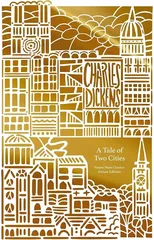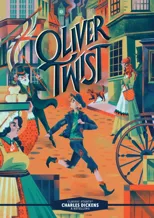The Mystery of Edwin Drood
(Author) Charles Dickens'Where is my nephew?, asked Mr Jasper, wildly. 'Where is your nephew?' repeated Neveille. 'Why do you ask me?' 'I ask you,' retorted Jasper, 'because you were the last person in his company, and he is not to be found.' The Mystery of Edwin Drood, Dickens's last novel, lay unfinished at his death. Speculation remains rife as to its probably conclusion; evidence suggests that, fascinated as Dickens was by details of the plotting, his basic concern was for character and appropriate setting, in particular the character of the hero-villain, Jasper. The ancient city of Cloisterham, its cathedral a reminder of mortality, human frailty, and the lawful life, is an effective background for what Dickens daughter called a tale of 'the tragic secrets of the human heart'. Humour is provided by a host of characters ranging fro Mr Grewgious, the admirable though eccentric lawyer, and Miss Twinkleton, guardian of the Young Ladies' Seminary, to Durdles, the hard-drinking stonemason, and Deputy, the irreverent lodging-house boy. This edition contains Dickens's working plans for the novel, and the text is that of the authoritative Clarendon edition. ABOUT THE SERIES: For over 100 years Oxford World's Classics has made available the widest range of literature from around the globe. Each affordable volume reflects Oxford's commitment to scholarship, providing the most accurate text plus a wealth of other valuable features, including expert introductions by leading authorities, helpful notes to clarify the text, up-to-date bibliographies for further study, and much more.
Charles Dickens
Charles Dickens was an English novelist and social critic, born in 1812. He is best known for his vivid characters, intricate plots, and powerful social commentary. Some of his most notable works include "Oliver Twist," "Great Expectations," and "A Christmas Carol." Dickens' writing style often combined humor with pathos, and his works often highlighted the struggles of the lower classes in Victorian England.
Dickens had a profound impact on the development of the novel as a literary form, helping to popularize serial publication and bringing attention to issues of poverty, injustice, and inequality. His most famous work, "A Tale of Two Cities," is a historical novel set during the French Revolution and is considered a classic of English literature. Dickens' legacy continues to resonate today, as his works remain popular and influential in the world of literature.


